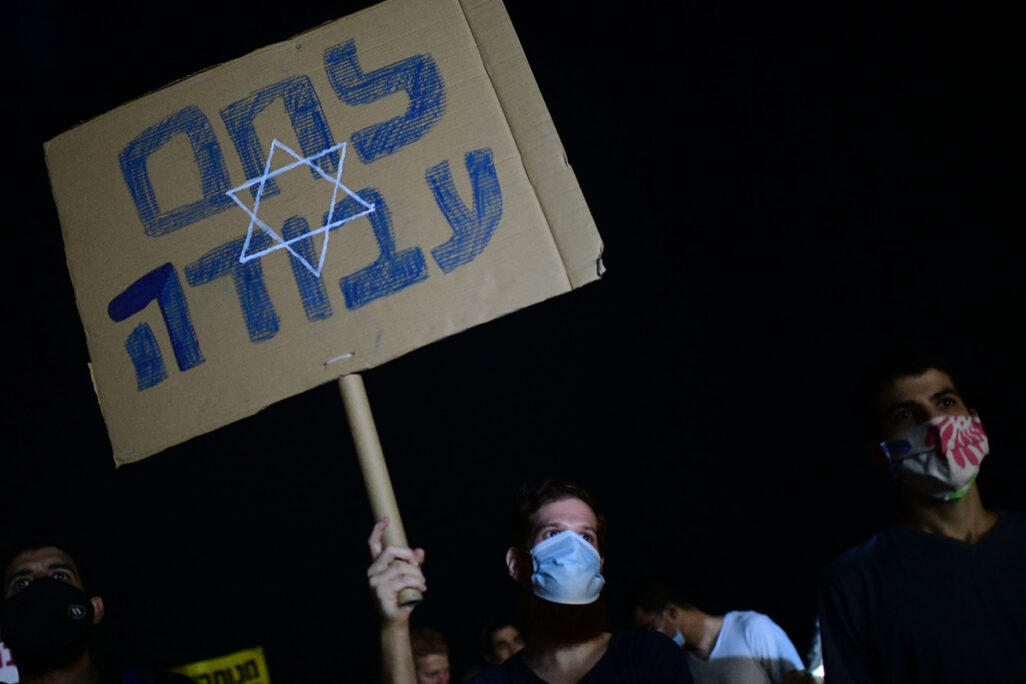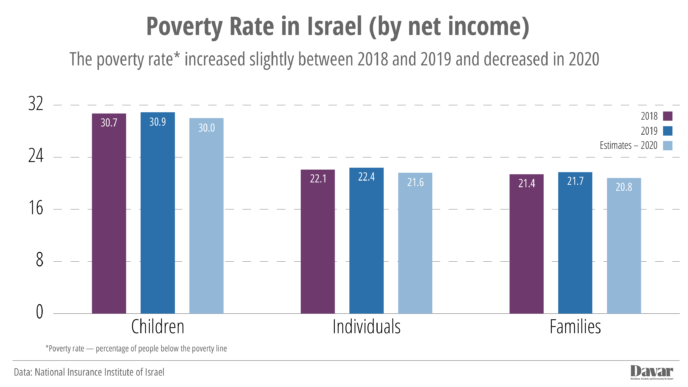
Almost two million Israelis fall below the poverty line, including over 900,000 children, according to Bituach Leumi (National Insurance Institute) in its annual poverty report published last week. According to the report, the pandemic has affected self-employed workers and families in the middle income deciles (4-7) the most intensely.
The report includes data on poverty for 2019, along with a preliminary estimate for 2020, which allows an assessment of the impact of coronavirus on poverty in Israel.

Compared to middle-income households, low-income households have seen a rise in average income, mostly thanks to government stimulus spending targeted toward underprivileged populations. The report found that the benefits most effective in alleviating poverty during the crisis were unemployment benefits and benefits per number of children.
The report also found that the average standard of living based on income in Israel fell by 22.7% in 2020, and saw a considerable rise both in poverty and inequality. However, the report also states that the financial assistance offered by the government has managed to shield households from much of the negative effects of the crisis, causing living standards to fall by only 4.4% after accounting for government stimulus spending.
The fall, however, is still considerable when compared to the average annual rise of 3%-4% in the standard of living in previous years.
In fact, government social spending has caused the average level of poverty to fall slightly. According to the report, poverty levels fell by 1.5% in 2020. The only exception to this were the self-employed, who are not entitled to unemployment benefits in Israel.
The Gini index, which measures levels of inequality, fell by 0.1% in 2020. However, when measured by income before government assistance, the index soared by 7.8%, which indicates that stimulus spending was crucial to preventing rising levels of income inequality due to the crisis.

The report predicts that the effects of the crisis will continue throughout 2021, and stresses that more government aid is needed to reduce the social and economic impacts of the coronavirus. The report calls for further social spending in 2021, on top of return-to-work programs.
The report also notes that before the crisis, Israeli social spending was 4 percentage points lower than the average in developed countries. The additional funding has brought overall spending to average levels.
“The report's findings prove the validity of Bituach Leumi’s demands regarding the state's obligation to increase benefits and thereby reduce the large gap between us and OECD member countries,” said Meir Shpigler, Head of Bituach Leumi. “The effects of the decisions to anchor Israeli citizens’ social security testify to this, and have the potential to be strengthened by future decision-makers, through legislation that will allow the public to deal with reality in routine and times of crisis.”
Minister of Labor and Welfare Itzik Shmuli emphasized the report’s call for continued and improved government welfare programs in the face of the pandemic.
“From now on, active steps must be taken to encourage employment, so we are investing heavily in vocational training and back-to-work grants, while at the same time significantly expanding the social safety net in the next budget by increasing transfer payments, and more massive investment in social services," he said.






